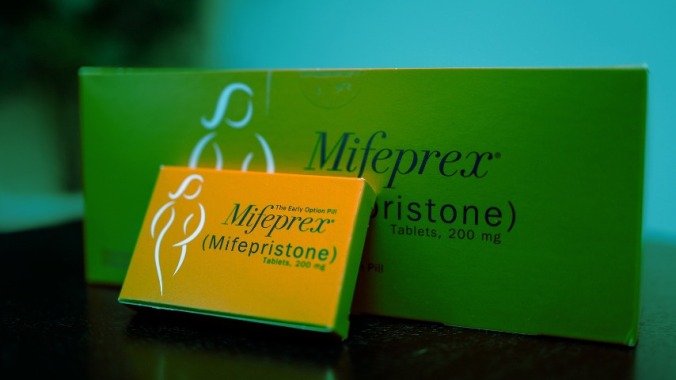Nebraska Is Latest Abortion-Banned State Proposing Insane New Attacks on Abortion Pills
Nebraska Republicans introduced a bill that imposes invasive and unnecessary requirements for physicians to prescribe medication abortion, which medical experts say amounts to a total ban on the pills.
Photo: Getty Images AbortionPolitics
With abortion banned or severely restricted in about half of states, state legislatures are now closing in on abortion pills. This week, the Nebraska Examiner reports that Republicans introduced a bill that, if passed, would impose invasive requirements on physicians in order to prescribe medication abortion. At least one medical expert likened the requirements to “a total ban” on the medication.
Under LB 512, named the Chemical Abortion Safety Protocol Act, authored by state Sen. Rick Holdcroft, physicians would be required to independently verify that the person seeking the pills is pregnant; determine if they have an ectopic pregnancy; document their gestation; determine and document their blood type; and even determine whether they’re Rh negative, and potentially administer Rh immunoglobulin (a medication to prevent antibodies that could attack red blood cells, administered to Rh-negative people) to prevent Rh incompatibility complications in future pregnancies. The bill further requires an in-person follow-up visit with the physician between three and 14 days after taking the medication.
-

-

-

-

-

-

-

-

-

-

-

-

-

-

-

-

-

-

-

-

-

-

-

-

-

-

-

-

-

-

-

-

-

-

-

-

-

-

-

-








































